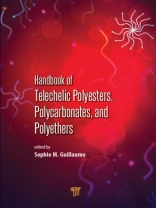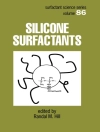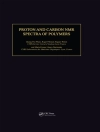Telechelic polymers have garnered a great deal of scientific interest due to their reactive chain-end functions. This comprehensive book compiles and details the basic principles of and cutting-edge research in telechelic polyesters, polycarbonates, and polyethers, ranging from synthesis to applications. It discusses general strategies toward telechelic polymers, centered on the fundamental aspects of polycondensation reactions, of cationic, anionic, coordination-insertion, and activated monomer mechanisms of the metal-, enzyme-, or otherwise organocatalyzed ring-opening polymerization of cyclic monomers, and of postpolymerization chemical modification methods of polymer precursors. All main classes of polymers are covered separately, comprising polyhydroxyalkanoates, poly(ε-caprolactone)s, poly(lactic acid)s, polylactides, polycarobnates, and polyethers, including synthetic approaches as well as some illustrative, up-to-date examples and uses. The book also addresses applications of hydroxyl, thiol, amino, or acrylate/methacrylate end-capped polymers as starting materials for the preparation of diverse polymer architectures ranging from block, graft, and star-shaped polymers and micelles to precursors for ATRP macroinitiators, polyurethane copolymers, shape-memory polymers, or nanosized drug delivery systems. The book will appeal to advanced undergraduate- and graduate-level students of polymer science; researchers in macromolecular science, especially those with an interest in functional and reactive polymers; and polymer chemists in academia and industry.
Sophie M. (University of Rennes, France) Guillaume
Handbook of Telechelic Polyesters, Polycarbonates, and Polyethers [PDF ebook]
Handbook of Telechelic Polyesters, Polycarbonates, and Polyethers [PDF ebook]
Dieses Ebook kaufen – und ein weitere GRATIS erhalten!
Format PDF ● Seiten 446 ● ISBN 9789814745635 ● Verlag Pan Stanford Publishing ● Erscheinungsjahr 2017 ● herunterladbar 3 mal ● Währung EUR ● ID 5407654 ● Kopierschutz Adobe DRM
erfordert DRM-fähige Lesetechnologie












